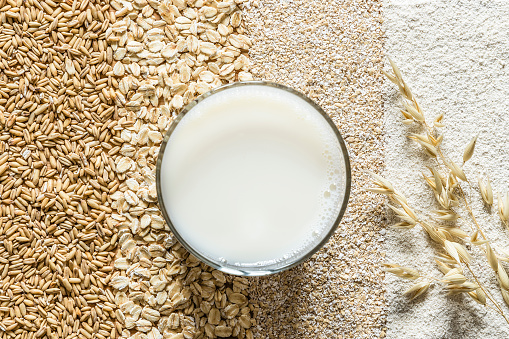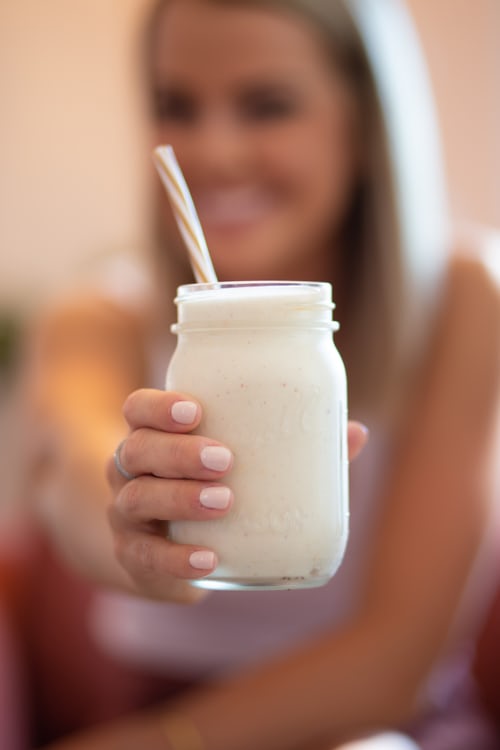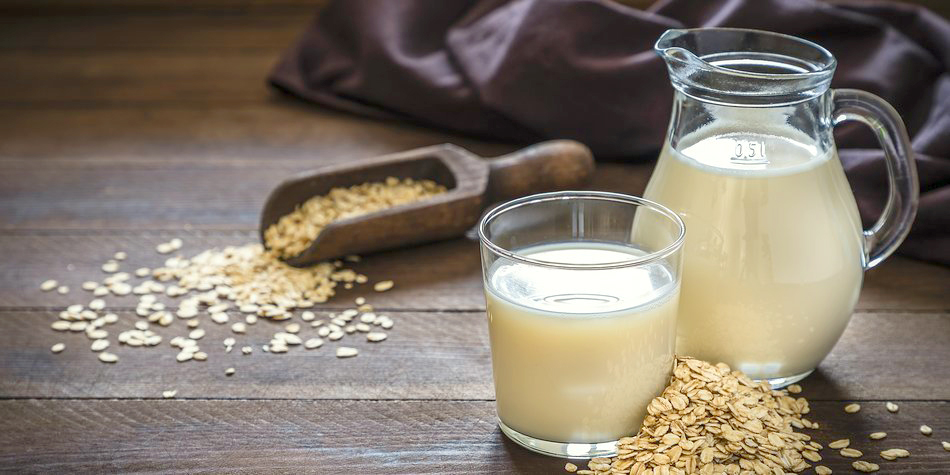Are you a vegan, or lactose intolerant? Not a fan of dairy milk flavor? Do you believe that it is not an adult beverage, but you cannot give up your morning cappuccino? Well, fear not! There is a wide spectrum of alternative plant-based solutions to consider. In this article, we will delve into one of these options. A creamy texture, neutral flavor, perfect with coffee, good nutritional values, and, above all, environment-friendly. Oat milk: experience the taste of sustainability!

First of all, what is exactly Oat Milk?
Oat milk is a plant-based beverage. The name ‘milk’ is actually incorrect. In fact, this type of vegetal drink works well as an alternative to dairy milk, but it is not a real substitute. The oat-based drink is basically a combination of oats and water. It does not require complex preparation techniques. If you like, you can even prepare it at home! You just need to blend the two ingredients and successively filter them, so as to obtain the liquid. In some cases, manufacturers add flavors such as vanilla to enhance the sweetness. Often they enrich oat milk with vitamins and mineral salts; whereas “acidity regulators”, such as potassium phosphate, are less common. The result is a product with a delicate flavor and an enveloping texture. It will go great with fruit in your smoothies and shakes!
Is Oat Milk Heathy?
Nutritionists’ answer is yes. Oat milk is good for our health and can be incorporated into a balanced diet. It is gluten-free, nut-free, and dairy-free. Among all the plant-based beverages, it is the one that most closely resembles dairy milk, nutritionally talking. It is rich in nutrients like calcium, potassium, iron, and vitamins. In particular, stands out its intake of vitamin D and vitamin B-12. It contains a higher amount of vitamin D than dairy milk, which facilitates calcium absorption and benefits the bone system. Vitamin B-12, on the other hand, results to have beneficial effects on hair, nails, and skin. Oat milk is indeed an excellent ally against skin rashes, burns, itch, erythema, and eczema. During the 1930s, the cosmetic industry began to use it in their products, exploiting its soothing and protective power.
Always check food labels!
Although oat milk is generally a viable alternative to dairy milk, we need to pay attention to the list of ingredients and where they come from. Plant-based beverages often contain added sugars, so it is best to buy unsweetened products. Another threat to consumers’ health is GMOs. One example is glyphosate, a herbicide used in the crop of soy, which works also as a pre-harvest desiccant of many grains; including oats. Therefore, it is important to make sure that the oats in our oat milk have been grown organically. Biological products ensure these characteristics. Absolute security comes with the Ecolabel: a real guarantee of products’ environmental sustainability.

Environmental Impact
According to an Oxford University study, producing one cup of cow’s milk generates three times more greenhouse gases than one cup of any plant-based beverage. So, choosing plant-based options is an act of solidarity towards the planet. Soy milk is the most widely consumed. However, many are skeptical about its environmental impact. Richard Young, the author of a study published by the University of Nottingham and Sustainable Food Trusts flags, explains: “Soybean meal has a very high carbon footprint if it comes from crops grown on land recently converted from forest or savanna”. In terms of water consumption, oat milk is one of the vegetal drinks that need less water during production. If compared with almond milk, the difference is significant. In fact, almonds need 1,929 gallons per pound, compared to 290 gallons per pound for oats.
Plant-based Beverages’ Role on the Global Market
According to the 2021 Market Analysis Report, “the global dairy alternatives market size was valued at USD 20.50 billion in 2020 and is expected to expand at a compound annual growth rate (CAGR) of 12.5% from 2021 to 2028”. However, it is important to remember that oat milk, like other vegetal beverages, cannot really be considered milk substitutes. In addition, plant-based milk alternatives on the market today are often more expensive than cow’s milk. As the market for milk replacers expands and climate change issues steadily increase, it comes to question when we will reach a real breakthrough in terms of affordability. Meanwhile, the cheapest option seems to be making your homemade plant-based beverage. What are you waiting for? Experience the taste of sustainability!





